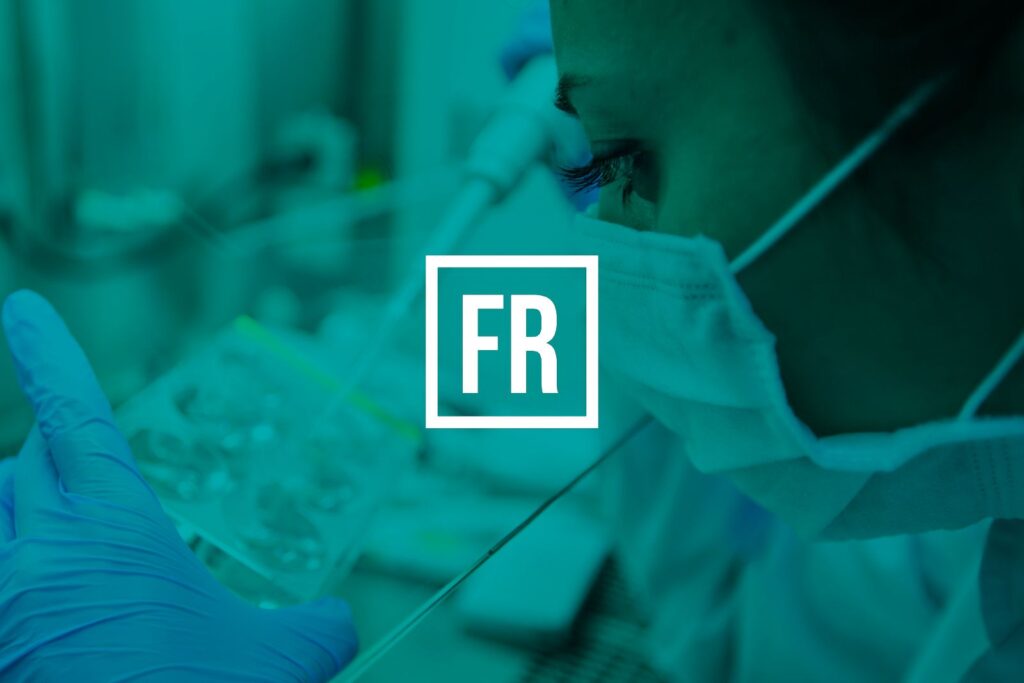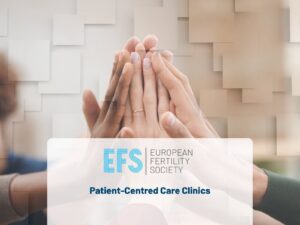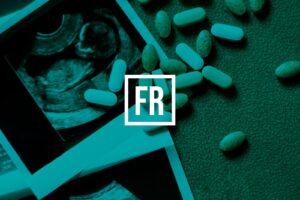The one part of the IVF journey I find patients fear most is the egg collection stage, especially in their first cycle. It is easy to see why of course as it is the most invasive step of the whole procedure and some form of sedation is normally given, which for many women is their first experience of an ‘operation’ and ‘anaesthetic’. Another big fear is that there might not be enough eggs. So, this article is designed to give you a clear and useful guide to what happens and how best to prepare and look after yourself during this key stage of your fertility journey.
The science behind it all
The daily hormone injections given during an IVF program allow the small follicles (sacs of fluid within the ovary that contain the eggs) to grow. Once they reach about 18 mm or more in size, the eggs inside are mature and ready to be collected. To prepare the eggs for collection, a ‘trigger’ injection has to be given. When scheduling your egg collection, your clinic will ask you to take this ‘trigger’ injection about 36 hours before your egg collection procedure. There is not much wiggle room here as if you take it too early you could end up ovulating before your egg collection is due to start but if you take it too late, then the eggs may be very difficult to collect. The trigger hormone mimics your natural ovulation hormone and allows certain key biological processes to be initiated within the egg which are critical to the successful retrieval of the eggs and their subsequent fertilization by fresh or frozen sperm. Forgetting to take the trigger injection at all (which does occasionally happen) could mean your egg collection has to be canceled. So, it is really important to follow very precisely the instructions you are given for this injection.
Preparing for your egg collection
Once your egg collection day is confirmed, you will be told when you need to take your final doses of medication, including your trigger injection. Follow the instructions carefully and give yourself enough time to prepare your trigger, inject the solution at the correct time, perhaps getting your partner, relative or friend to help you.
The night before your egg collection, you should try to have a nice relaxing bath or shower and prepare everything you might need to bring with you on the day. As there may be some waiting around before and after the procedure, pack something to read and distract you, along with some headphones if you find listening to your favourite music helps you to relax. Drink plenty of fluid during the evening before egg collection as you will be told to stop taking food and fluids a few hours before you come to the clinic for your procedure. Being well hydrated will really help with your recovery. As for what to wear, something loose fitting and comfy like a loose t-shirt, jogging pants and trainers is ideal as you may feel a bit bloated as a result of the fertility injections. Many of my patients will tell you I am a great fan of egg collection ‘lucky’ socks, something fun and positive you can choose, perhaps with your partner, that might have a special meaning for you both, but will also keep your toes warm during the procedure (you will have to wear some form of hospital gown for your egg collection but you will be allowed to keep your socks on!).
What actually happens during the egg collection
When you arrive at the clinic, the nursing team will go through a routine admission process, including checking your name and date of birth, blood pressure and weight and they will ask a few questions about your health and treatment. You will then be asked to change into a clinical gown before meeting the medical team who will talk you through the egg collection and sedation process, answer any questions you may have and take your consent for the procedure.
Once you are ready, you will be taken into the egg collection room and given some sedation to relax you. Although the types of sedation differ between IVF centres, most will provide a combination of two drugs; one which allows you to relax and, in most cases, sleep through the procedure and the other to provide some pain relief. Normally this medicine will be given through a small needle in the back of your hand. A few clinics offer a general anaesthetic rather than sedation for egg collection. If this is the case, your recovery may be a bit longer.
The egg collection will be carried out by a doctor who is a qualified Fertility Consultant or Specialist trained in gynaecological ultrasound-guided procedures. They will wait until you are asleep or sedated and then scan you internally. A fine needle attached to an ultrasound scanning probe will be passed through your vagina into each ovary to collect the eggs. The doctor will be able to see exactly what is happening on the ultrasound screen. The procedure takes on average between 10 and 30 minutes, depending on how many eggs are to be collected and at the end of the egg collection, you will be taken to the recovery bay where the nursing team will look after you until you are fully awake. You will be offered some fluids such as water or tea and a light meal before leaving the clinic. Once your eggs have been collected, if they are to be frozen this will happen later that day. If they are being used in creating embryos, they will be placed in a dish with the sperm either from your partner or from a sperm donor for fertilisation to occur. If the sperm is low in numbers or of poor quality, the sperm will be injected into the eggs (known as intracytoplasmic injection or ICSI). This is a form of IVF where a single healthy sperm is injected directly into the centre of each egg to assist fertilisation. The treated eggs are then placed in an incubator overnight. This provides the optimum conditions to allow fertilisation to take place.
How will I feel afterwards?
Having your eggs collected is not normally a painful procedure. Some patients may feel some period pain for an hour or two afterwards and others may have no pain at all. However, everyone is different and just as no one person has the same reaction to an internal examination or a tooth extraction, the pain experienced after an egg collection can really vary quite a lot. Those who typically suffer severe period pains or who have endometriosis often experience more pain than those who never experience much menstrual pain. This is why it is routine practice to give all patients having an egg collection some pain relief at the end of the procedure, usually in the form of Nurofen given as a rectal pessary or paracetamol given intravenously. A prophylactic antibiotic is also given rectally at the end of the procedure to minimise any risk of infection, which is a very small risk in this procedure (less than 0.1%). You might experience some light vaginal bleeding when you first go to the toilet but this will quickly tail off. If it is heavy, please let the nurse looking after you know. Like infection, post egg collection bleeding is a rare event, again occurring in less than 0.1% of cases, but it is important that you make the clinic aware of this so that they can act promptly to investigate why it is happening and deal with it.
Some people take longer to recover from the anaesthetic than others and some may feel nauseous and light headed. A medicine to stop nausea is often given with the sedation to prevent any unpleasant feelings of sickness after the egg collection. Feeling lightheaded often comes from the fact that you have not eaten for a few hours before your egg collection, so do remember to drink plenty the night before and make sure you take plenty of fluid and a light meal as you are recovering. You will be asked to empty your bladder before being discharged and this is usually a good time for the nursing team to check you are steady on your feet and back to your normal self before you leave the clinic.
If your partner is involved in your treatment, they will need to provide a sperm sample on the day of egg collection, often after they have accompanied you to the admissions lounge for your procedure. It is unusual for them to be allowed to stay with you during the procedure.
How will I feel once I get home?
If you have had any form of sedation, your ability to make decisions may be impaired and although you may feel very well in yourself, you should not drive or make any important decisions. You also need to have someone with you for 24 hours after any anaesthetic procedure to look after you in case you have any reaction to the anaesthetic, or drop in your blood pressure and feel faint. This can be your partner, relative or friend and they should contact the clinic if they have any concerns or worries.
This is a time to relax, put your feet up and watch TV or a film and not worry about anything that might be going on in your home or work life. Whatever the outcome of the egg collection, it is over and that in itself should leave you feeling more relaxed.
5 Do’s and Don’ts before and after egg collection
Do’s:
- Give yourself the full day off to focus on the procedure, recover and relax
- Make sure you have someone available to look after you after your egg collection
- Prepare some yummy food for egg collection day
- Have a hot water bottle and some paracetamol ready in case you need it when you get home
- Ensure you wear loose-fitting, comfortable clothes so you don’t feel restricted
Don’ts:
- Wear heavily scented perfume or nail varnish
- Go home by yourself or be left alone
- Panic – you have done all that you can and now you need to trust the team who are looking after you!
- Drink alcohol before or after egg collection
- Forget your lucky socks!






